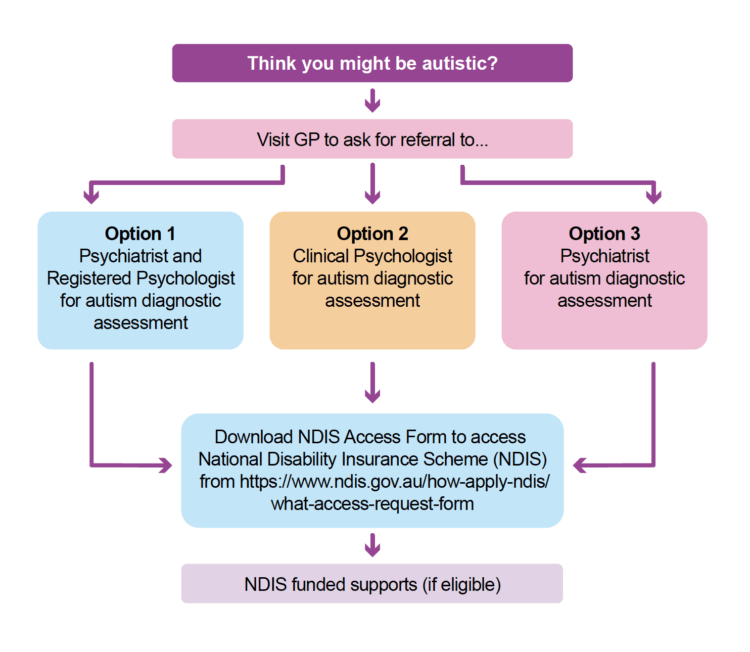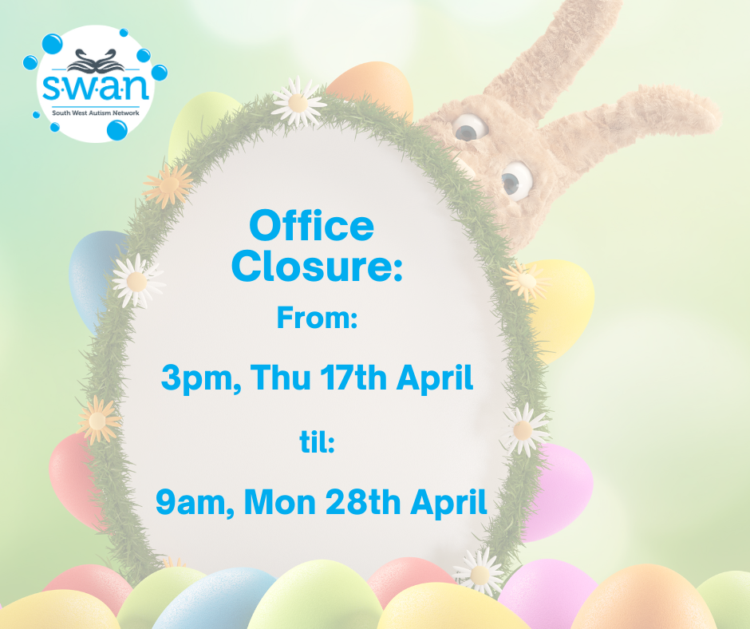
Getting a diagnosis in Western Australia (18 years +)
Here’s how it works:
The autism diagnostic process for individuals in WA starts with an appointment with your GP to discuss your concerns and ask for a referral to an appropriate professional. Your GP may recommend a particular specialist, but you can ask to be referred to the specialists of your choice. If you don’t hear from the specialists within two weeks of them being sent the referral, it’s a good idea to contact them directly.
Adults up to the age of 25 years may be eligible for a Medicare rebate when referred by a Psychiatrist to a Psychologist for diagnosis.

In order to meet the access requirements for the National Disability Insurance Scheme (NDIS), and possibly Disability Support Pension, diagnostic assessment by either a Psychiatrist or Clinical Psychologist alone may be enough, as long as the report meets eligibility requirements, and there is sufficient evidence of autism in early childhood. There may need to be a second assessment carried out if needed. Alternatively, you can have a diagnostic assessment by both Registered Psychologist and Psychiatrist.
Autism is diagnosed using the DSM-V-TR, and people are diagnosed based on having difficulties in two areas:
a) Social communication
b) Restricted, repetitive behaviour or interests
The diagnostic report should also include a level of severity for both areas. The levels are:
• Level 1 – The individual needs support.
• Level 2 – The individual needs substantial support.
• Level 3 – The individual needs very substantial support.
Currently, a diagnosis of autism level 2 or 3 is automatically eligible for NDIS. A diagnosis of autism level 1 may also be eligible for NDIS, but you would need to submit supporting evidence of the impact a person’s autism has on their ability to function.




